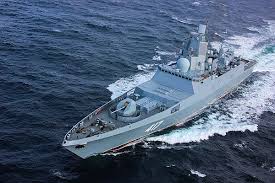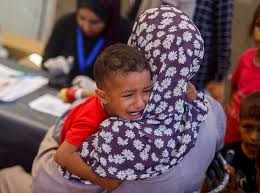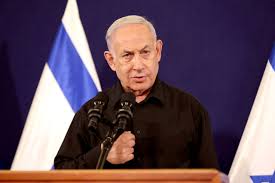
F.P. Report
BRUSSELS: The Sixth Regional Forum of the Union for the Mediterranean (UfM) gathered Ministers of Foreign Affairs of the Euro-Mediterranean region on 29 November 2021 in Barcelona under the Co-Presidency of the Hashemite Kingdom of Jordan and the European Union to take stock of progress achieved and to guide further work ahead.
The meeting provided a valuable opportunity to recognize the importance played by the UfM as a unique, action-driven platform promoting regular dialogue and cooperation, and concretely addressing common challenges in view of a more peaceful, secure, green, prosperous and inclusive Mediterranean region.
The UfM can contribute to these goals in the Mediterranean region by creating, through dialogue and cooperation, a political environment that is conducive to the solution, in relevant fora and on the basis of agreed parameters, of the conflicts and the political tensions affecting members of the UfM.
The need to strengthen efforts to solve protracted conflicts and crises that are depriving the region from its right to peace and stability was emphasised.
Regarding the Middle East peace process, recent high-level contacts between the parties were welcomed, including agreeing on measures to improve the socio-economic conditions in the occupied Palestinian territory. All steps were encouraged that contribute to creating political horizons to achieve just and comprehensive Middle East peace and to relaunch effective negotiations to solve the Palestinian Israeli conflict on the basis of the two-state solution and in accordance with international law. It is important that both parties avoid decisions that can undermine trust, including the building of new settlements. The importance of upholding the historical status quo for the Holy Sites in Jerusalem, including with regard to the Hashemite custodianship, was recalled. The indispensable role of UNRWA and the need to support it politically and financially in order to allow it to continue to fulfil its UN mandate was also reaffirmed. To this end, the efforts by Jordan and Sweden to convene an international conference on UNRWA, which took place in Brussels on 16 November 2021, and the commitments demonstrated by the participating countries and international organizations, were highly welcomed.
There was also expression of support for the international and regional efforts to support a Libyan-led and Libyan-owned political process under the UN auspices, with the aim of achieving a political solution to the Libyan crisis, on the basis of the Libyan road map, and relevant UNSC resolutions including 2570 & 2571, a solution that preserves the unity, sovereignty and territorial integrity of Libya, stops all foreign interference, and achieves national reconciliation, sustainable peace and stability. In this regard, the importance of holding presidential and parliamentary elections, on 24 December was reiterated, and the need for the implementation of the 23 October 2020 ceasefire agreement, including agreed upon comprehensive Action Plan resulting in the complete withdrawal of all foreign forces, foreign fighters, and mercenaries from the Libyan territories.
UfM members stressed the continued need to push for a political solution to the Syrian crisis through the full implementation of all aspects of UNSC resolution 2254 and the 2012 Geneva communiqué, aiming at sustainable, genuine and inclusive political solution that preserves the unity, sovereignty and territorial integrity of Syria; restores peace and stability; and creates conditions for the safe, voluntary and dignified return of refugees. Members expressed their full support for UN Special Envoy Geir Pedersen and his efforts, including facilitating the meetings of the Constitutional Committee. UfM members renewed their commitment to supporting the Syrian people through providing humanitarian aid to those in need in Syria and to supporting Syrian refugees and their host countries and communities.
We are ever more determined to work together in a spirit of partnership and this remains a strategic imperative for a strengthened Euro-Mediterranean region. To this effect, we reaffirmed the need of the UfM to increase its synergy with regional and sub-regional initiatives and continue to develop partnerships with multilateral organizations involved in the regional implementation of the 2030 United Nations Agenda for Sustainable Development.
The Roadmap for Action of 2017 remains the comprehensive strategic framework to inform the identification of regional interests, priorities and activities of the UfM. As demonstrated by the UfM Secretariat ahead of the Regional Forum through its detailed report, efforts achieved in the past years to implement the Roadmap have led to significant progress in all five priority areas decided at the Fifth Regional Forum in 2020: environmental and climate action, sustainable and inclusive economic and human development, social inclusiveness and equality, digital transformation, and civil protection.
Amongst the many activities, the Ministerial declaration on environment and climate action of Cairo, 4 October 2021, is a fine example of a strong and unified message on behalf of the Mediterranean region. Last June already, UfM Ministers of Energy confirmed their intention to set a new clean energy transition pathway for the region. On blue economy, Ministers reaffirmed their commitments to cooperate closely and address challenges and opportunities for the sustainability of the Mediterranean Sea and the Blue Economy sectors.
We are now looking forward to the Ministerial meetings covering employment and labour, research and innovation, sustainable urban development and transports in the year to come. This will take place not least against the background of the serious effects of the lasting COVID-19 pandemic. The UfM is well suited to play a constructive role in assessing and addressing needs related to the economic and social post-COVID reconstruction aspects that do require transboundary solidarity. Together, we intend to prepare for future global health challenges, and drive forward a sustainable global recovery from the COVID-19 pandemic.
The civil society is playing a crucial role in the UfM partnership. In this respect, the Anna Lindh Foundation, the only Euro-Mediterranean organisation gathering civil society actors of the whole Mediterranean Basin, is playing an important role for the promotion of intercultural dialogue. Intercultural and interreligious dialogue has been a defining feature of the Euro-Mediterranean region throughout history, therefore Ministers stressed the importance of fighting against terrorism, extremism and the culture of hate that seeks to divide us, and expressed solidarity against all acts feeding hatred. Ministers called for additional efforts in combating negative stereotyping, intolerance, culture of hate, stigmatization, discrimination and use of violence based on religion or belief and promote instead harmony and respect for the other. The Parliamentary Assembly of the UfM and ARLEM also have to continue to play their role respectively to reinforce inter-parliamentary cooperation and to amplify the voices of local and regional authorities and to promote the territorialisation of the Euro-Mediterranean sectoral policies.
Notwithstanding the progress made, it is also true that, despite its massive potential, the region remains one of the most economically fragmented regions in the whole world. In the margins of this year’s Regional Forum, a side event was organised to exchange on the findings of the recent UfM Progress Report on Regional Integration and highlighted the UfM’s efforts to promote regional integration.
We also reaffirmed the importance to mobilise sufficient financial resources to enable the implementation of UfM labelled projects and enhance the credibility and financial viability of the labelled projects. UfM countries should continue to reiterate their commitment to support the UfM Secretariat, including through more balanced and predictable contributions to its budget.
This first ever Day of the Mediterranean celebrated yesterday confirmed the vibrant cooperation across the Mediterranean and reminded us of the importance to foster a common Mediterranean identity and increase the visibility and ownership of regional cooperation. It was an opportunity to strengthen ties, promote intercultural exchanges and dialogue, and embrace the diversity of the region.
We suggested meeting again in the same format for a Seventh UfM Regional Forum towards the end of 2022.
The post UfM: Jordan, EU Co-Chairs sixth regional Forum of the Union for the Mediterranean appeared first on The Frontier Post.






